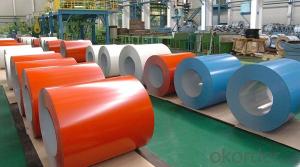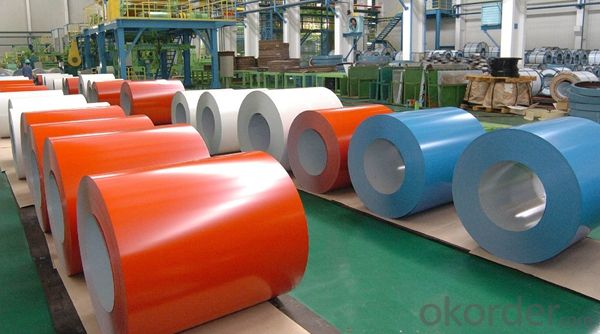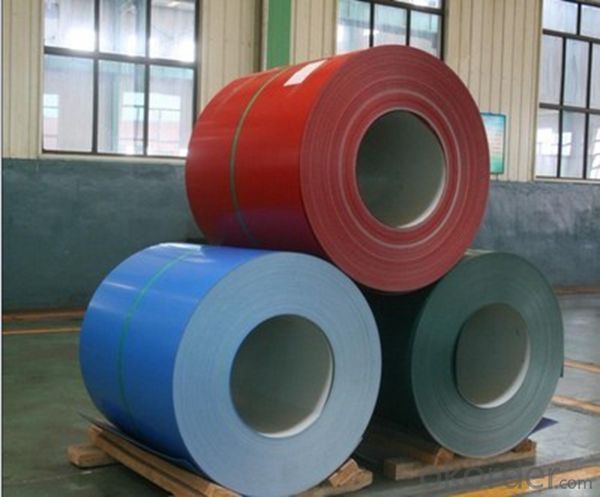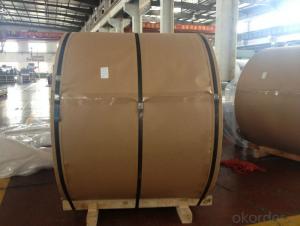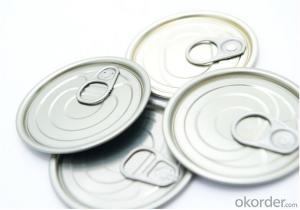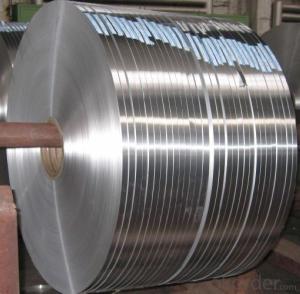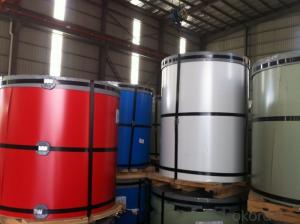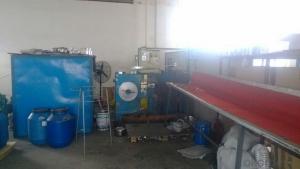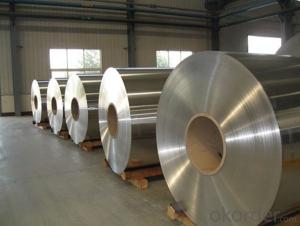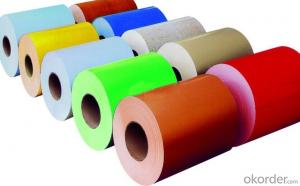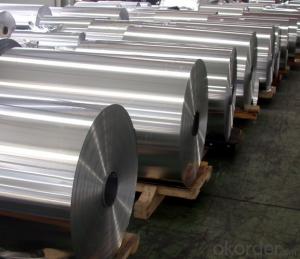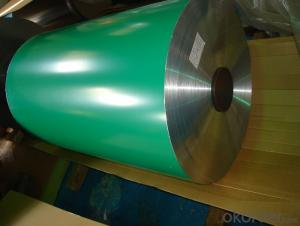Aluminum Coil Amerimax Upc 049821691820 PE and PVDF Color Coating Aluminum Coil Professional Manufacturer
- Loading Port:
- Shanghai
- Payment Terms:
- TT OR LC
- Min Order Qty:
- 5 m.t.
- Supply Capability:
- 10000 m.t./month
OKorder Service Pledge
OKorder Financial Service
You Might Also Like
Specification
1. Specification of PE and PVDF Color Coating Aluminum Coil Professional Manufacturer
characteristics | Application |
1) Super peeling strength | 1) Building exterior curtain walls |
2) Excellent surface flatness and smoothness | 2) Decoration and renovation additions for old buildings |
3) Superior weather, corrosion, pollutant resistance | 3) Decoration of interior walls, ceilings, bathrooms, kitchens and balconies |
4) Even coating, various colors | 4) Shop door decorations |
5) Fireproof, excellent heat and sound insulation | 5) Advertisement board display platforms and signboards |
6) Superior impact resistance | 6) Wallboards and ceilings for tunnels |
7) Lightweight and easy to process | 7) Industrial materials, materials for vehicles and boats |
2. Application of PE and PVDF Color Coating Aluminum Coil Professional Manufacturer
(1).Interior: wall cladding, ceilings, bathrooms, kitchens and balconies, shutters, doors...
(2).Exterior: wall cladding, facades, roofing, canopies, tunnels,column covers , renovations...
(3).Advertisement: display platforms, signboards, fascia, shop fronts...
3. Feature of PE and PVDF Color Coating Aluminum Coil Professional Manufacturer
*Such coil is specially designed to replace aluminum ingot, due to the high export tax of aluminum ingot, the coil has better price than ingot.
*This type of coil can fit customer's remelting furnace just like ingot, no need to make any change to the production line that was previously used for ingot. The standard coil size and weight is very suitable for the feed gate of furnace.
*This type of coil causes less material wastage than ingot when remelted.
*Our coil is made directly from ore, no need to go though the ingot making process, quality is much better than other suppliers who use ingot scrap to make coil.
Be free from Oil Stain, Dent, Inclusion, Scratches, Stain, Oxide Dicoloration, Breaks, Corrosion, Roll Marks, Dirt Streaks and other defect which will interfere with use
4. Certificate:
SGS and ROHS(if client request, paid by client), MTC(plant provided), Certificate of Origin(FORM A, FORM E, CO), Bureau Veritas and SGS (if client request, paid by client), CIQS certificate
5. Image of PE and PVDF Color Coating Aluminum Coil Professional Manufacturer
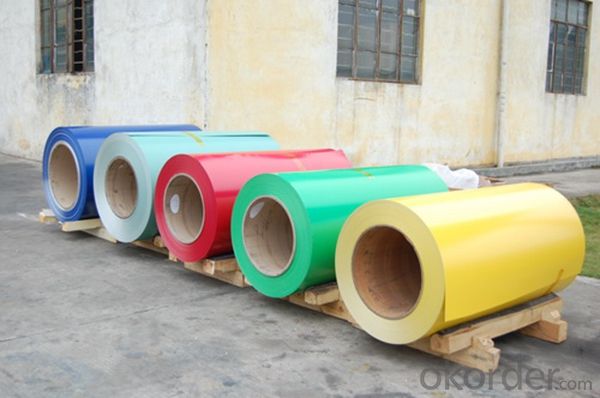
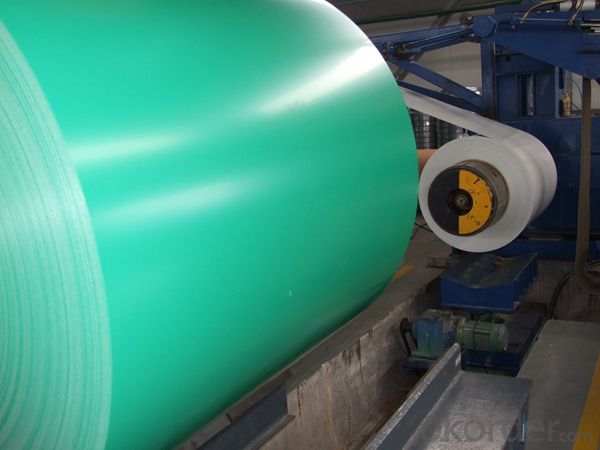
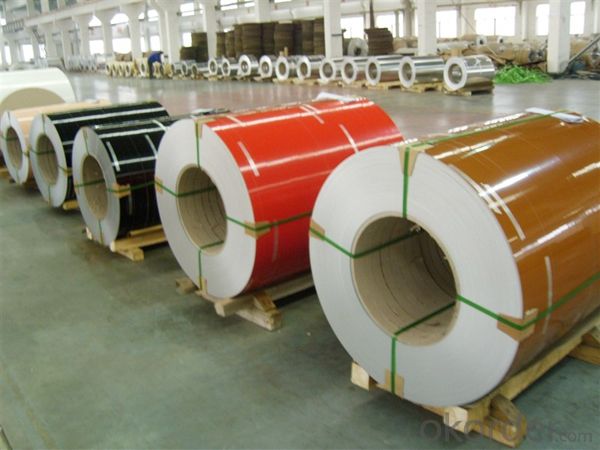
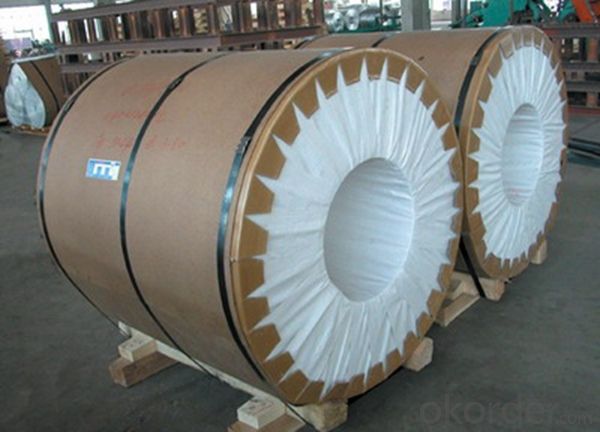
6. Package and shipping of PE and PVDF Color Coating Aluminum Coil Professional Manufacturer
eye to wall
eye to the wall
with wood pallet (wooded case also available)
7. FAQ
1) What is the delivery time?
Dpends on actual order, around 20 to 35 days
2)What is the QC system:
We have QC staff of 20 persons and advanced equipment, each production is with MTC traced from Aluminum ingot lot.
3) What market do you mainly sell to?
Australia, America, Asia, Middle East, Western Europe, Africa etc
- Q: Guangdong where there are professional to do around the paper corner, is packing steel coil, aluminium coil that protect the edge of the both ends of the cylinder. Just the kind of picture.
- Guangdong Province, professional Foshan recommended edgeboard around Foshan Ansheng packaging. They are very professional in their circle, L shaped, and curved corners.
- Q: What are the rules or laws governing the use of aluminum coils?
- <p>Yes, there are regulations on the use of aluminum coils, which vary by country and industry. These regulations often pertain to safety, quality standards, and environmental impact. For instance, in the construction industry, aluminum coils used for roofing or cladding must meet specific standards for strength and durability. In food packaging, regulations may dictate the type of aluminum alloys used to prevent contamination. Additionally, there are environmental regulations that govern the disposal and recycling of aluminum coils to minimize their impact on the environment. Compliance with these regulations is crucial for manufacturers, suppliers, and users of aluminum coils to avoid legal penalties and ensure public safety.</p>
- Q: Are there any limitations to the coil weight of aluminum coils?
- The coil weight of aluminum coils is subject to limitations. The primary factor that restricts the coil weight is the capacity of the equipment used for handling and transporting the coils. Different machinery and materials handling systems have varying weight capacities. Exceeding these capacities can result in safety hazards and equipment damage. Furthermore, the size and dimensions of the coils also affect the maximum weight limit. Larger coils generally have a higher weight limit because they possess a larger surface area to distribute the load. Nonetheless, regardless of coil size, there is a practical limit to the weight that the machinery and equipment can bear. Additionally, the coil weight limit is influenced by the strength and integrity of the material used. Aluminum, being a lightweight material with a high strength-to-weight ratio, allows for larger coil weights compared to other materials. However, excessive weight may cause deformation or damage to the coil, impacting its quality and usability. It is essential to take these limitations into consideration and adhere to the manufacturer's recommendations and industry standards when determining the maximum coil weight. Following proper handling, storage, and transportation procedures is crucial to ensure the safety of personnel and the integrity of the aluminum coils.
- Q: Are aluminum coils suitable for automotive heat shields?
- Yes, aluminum coils are suitable for automotive heat shields. Aluminum is a widely used material in the automotive industry due to its excellent heat resistance and thermal conductivity properties. It is lightweight and has a high strength-to-weight ratio, making it an ideal choice for heat shields. Aluminum coils can effectively dissipate heat and protect sensitive components from excessive heat exposure. Additionally, aluminum is corrosion-resistant, which is crucial for automotive applications where heat shields are exposed to various environmental conditions. Overall, aluminum coils offer the necessary properties and performance required for automotive heat shields.
- Q: What are the potential applications of coil-annealed aluminum coils?
- Coil-annealed aluminum coils possess a wide array of potential applications across diverse industries. One example lies within the automotive sector, where these coils can be utilized to fabricate lightweight parts and components for vehicles. The inherent lightness of aluminum renders it an ideal material for enhancing fuel efficiency and reducing emissions. This makes it possible to manufacture body panels, chassis components, and structural parts for automobiles. Another field that can benefit from coil-annealed aluminum coils is the construction industry. These coils can be employed in the production of roofing, siding, and wall cladding materials. The corrosion-resistant properties of aluminum render it a suitable choice for applications exposed to outdoor elements, where durability is paramount. Furthermore, the lightweight nature of aluminum simplifies handling and installation, thereby mitigating labor and transportation costs. The packaging industry also holds promise for coil-annealed aluminum coils. Aluminum proves to be an excellent material for food and beverage packaging due to its non-toxic, odorless, and impermeable attributes. Consequently, these coils can be utilized to manufacture cans, foil wraps, and pouches, providing a safe and hygienic packaging solution. Furthermore, the electrical and electronics industry can leverage coil-annealed aluminum coils. Aluminum boasts exceptional electrical conductivity, making it suitable for power transmission lines, electrical components, and heat sinks for electronic devices. Its lightweight nature further facilitates handling and installation in various electrical applications. In summary, coil-annealed aluminum coils offer versatility, durability, and lightweight properties that make them an excellent choice for a multitude of manufacturing needs across various industries. From automotive to construction, packaging to electrical, the applications for these coils are diverse and far-reaching.
- Q: What are the common surface protection methods for aluminum coils?
- Various industries widely use several common methods for protecting the surface of aluminum coils. These methods aim to ensure the long-term durability and performance of the coils by preventing corrosion and other types of damage. Anodizing is one of the most common surface protection methods for aluminum coils. It involves immersing the coil in an electrolyte bath and applying an electric current to create a protective oxide layer on the surface. This oxide layer not only improves the appearance of the coil but also enhances its resistance to corrosion, scratching, and wear. Coating is another popular method for protecting the surface of aluminum coils. It involves applying a layer of paint or coating material onto the coil's surface. Coatings can be applied using various techniques, such as electrostatic spraying, roll coating, or coil coating. These coatings act as a barrier between the aluminum surface and external elements, safeguarding it from moisture, UV radiation, and other environmental factors that can cause corrosion and damage. Protective films also offer a way to protect aluminum coils. These films, typically made from polyethylene or similar materials, are applied as a temporary protective layer. They help prevent scratches, abrasions, and other types of damage during transportation, storage, and installation. When it's time to use the aluminum coil, the protective film can be easily peeled off, leaving behind a clean and undamaged surface. Proper storage and handling practices are also crucial for protecting aluminum coils. Storing the coils in a dry, clean, and well-ventilated area, away from corrosive substances, can significantly extend their lifespan. Additionally, handling the coils with care and using appropriate lifting and transportation equipment can prevent physical damage that could compromise their integrity. In conclusion, the common methods for protecting the surface of aluminum coils include anodizing, coating, the use of protective films, as well as proper storage and handling practices. By employing these methods, aluminum coils can be effectively safeguarded against corrosion, scratching, and other forms of damage, ensuring optimal performance and longevity.
- Q: How are aluminum coils coated to enhance their durability?
- Aluminum coils are coated through a process called coil coating, where a thin layer of protective material is applied to enhance their durability. This coating can be done through various methods such as roll coating, spray coating, or coil coating lines. The coating material used is typically a combination of resins, polymers, and additives, which provide resistance against corrosion, UV rays, abrasion, and other environmental factors. This coating process helps to extend the lifespan of aluminum coils and maintain their appearance and performance even in harsh conditions.
- Q: Are aluminum coils suitable for air conditioning systems?
- Air conditioning systems can utilize aluminum coils, which are commonly employed due to their numerous advantages. Firstly, aluminum, being a lightweight material, facilitates ease of handling and transportation during installation. Additionally, this lightweight characteristic reduces the unit's overall weight, rendering it more energy-efficient. Moreover, aluminum coils possess exceptional heat transfer properties, thereby enabling efficient air cooling. They exhibit enhanced thermal conductivity, facilitating rapid and effective heat transfer. Consequently, this leads to improved cooling performance and enhanced energy efficiency, resulting in reduced electricity consumption and long-term cost savings. Furthermore, aluminum coils surpass other materials, such as copper, in terms of superior corrosion resistance. Given the exposure of air conditioning systems to moisture and humidity, this resistance is crucial. Aluminum coils can withstand these conditions without corroding or deteriorating, ensuring a longer lifespan and reliable performance. Another advantage of aluminum coils lies in their affordability. Aluminum is a cost-effective material, making it a favored choice among air conditioning manufacturers. This affordability subsequently translates into lower costs for consumers, making air conditioning systems more accessible and economically viable. In conclusion, the suitability of aluminum coils for air conditioning systems is evident due to their lightweight nature, impressive heat transfer properties, corrosion resistance, and affordability. They offer efficient cooling capabilities, durability, and cost-effectiveness, establishing themselves as the preferred choice for air conditioning units.
- Q: How are aluminum coils used in the production of food processing equipment?
- Aluminum coils are commonly used in the production of food processing equipment due to their excellent thermal conductivity, corrosion resistance, and lightweight nature. These coils are often formed into various shapes and sizes to create components like heat exchangers, evaporators, and condensers that help regulate temperature during food processing. Additionally, aluminum coils can be easily cleaned and sanitized, making them ideal for use in the food industry where hygiene is crucial.
- Q: And if the deodorant companies know that aluminum causes cancer, why do they keep putting it in their products?
- Antiperspirant. okorder /
Send your message to us
Aluminum Coil Amerimax Upc 049821691820 PE and PVDF Color Coating Aluminum Coil Professional Manufacturer
- Loading Port:
- Shanghai
- Payment Terms:
- TT OR LC
- Min Order Qty:
- 5 m.t.
- Supply Capability:
- 10000 m.t./month
OKorder Service Pledge
OKorder Financial Service
Similar products
Hot products
Hot Searches
Related keywords
